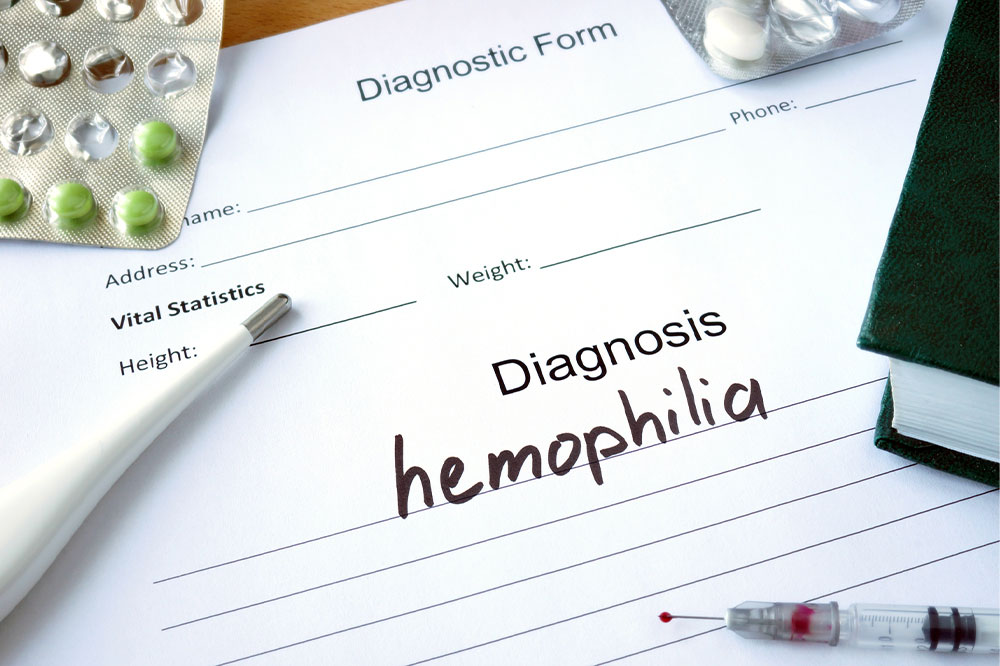Comprehensive Guide to Managing Hemophilia B Effectively for Better Health
This comprehensive guide delves into effective management strategies for hemophilia B, highlighting the importance of replacement therapy, regular treatment, safety precautions, and lifestyle modifications. Learn how modern medical advancements and proactive measures can help individuals live healthier, more active lives despite this hereditary bleeding disorder. Expert tips on home self-injection and dietary support further empower patients to manage their condition confidently, ensuring better health outcomes and quality of life.

Comprehensive Guide to Managing Hemophilia B Effectively for Better Health
Hemophilia B, also known as Christmas disease, is a hereditary bleeding disorder that profoundly affects the blood's capacity to clot properly. This condition results from a deficiency or malfunction of clotting factor IX, an essential protein necessary for blood coagulation. Individuals living with hemophilia B often experience spontaneous bleeding episodes, prolonged bleeding after injuries, or bleeding into joints and muscles, which can severely impact quality of life if not appropriately managed. Although there is currently no cure for hemophilia B, advancements in medical treatment have drastically improved patient outcomes, enabling many to lead active and healthy lives. This comprehensive guide aims to provide detailed insights into effective management strategies, addressing the importance of medical interventions, lifestyle modifications, and proactive health measures.
Focused Replacement Therapy for Clotting Factor IX: The cornerstone of hemophilia B management revolves around replacing the missing or defective clotting factor IX through specialized injections known as replacement therapy. These injections can be manufactured from commercial concentrates or derived from carefully screened blood donations. The goal is to elevate and maintain adequate levels of factor IX in the bloodstream to facilitate proper clot formation. Regular administration helps prevent spontaneous bleeding episodes and minimizes the risk of joint damage caused by repeated hemorrhages. Patients may receive either on-demand therapy, administered during bleeding episodes, or prophylactic therapy, involving scheduled regular infusions to prevent bleeding altogether.
Prophylactic Regular Replacement for Severe Cases: Individuals with severe hemophilia B often require consistent replacement therapy—typically two to three times weekly—to maintain stable clotting factor levels. This proactive approach greatly reduces the frequency of spontaneous bleeds, especially into joints and soft tissues, which can lead to chronic pain, swelling, and long-term disability if left untreated. Healthcare providers tailor treatment plans based on severity, lifestyle, and response to therapy, ensuring optimal blood clotting function while minimizing potential complications.
Ensuring Blood Safety Through Rigorous Screening: Since treatment relies on blood donations in some cases, it is critically important that all blood products undergo stringent screening processes to exclude viruses such as hepatitis B and C, HIV, and other infectious agents. Advances in medical screening technology have significantly reduced the risk of transfusion-transmitted infections, providing safer options for patients. Additionally, recombinant clotting factor concentrates, which are produced without human blood, have become increasingly common, offering an even safer alternative to plasma-derived products.
Preoperative and Injury-Related Treatment: For mild to moderate cases, healthcare providers recommend administering clotting factor IX prior to surgeries, dental procedures, or any activity that increases the risk of bleeding. Pre-treatment ensures the blood can clot effectively during and after procedures, minimizing blood loss and promoting smooth recovery. Patients are often advised to inform all healthcare providers about their condition, carry emergency cards, and coordinate with medical teams to facilitate prompt treatment during emergencies.
Home Self-Administration and Emergency Preparedness: Many patients with hemophilia B are trained to self-inject clotting factor IX at home, enabling swift response during bleeding episodes, especially in emergency situations. Self-management reduces the need for hospital visits, provides greater autonomy, and ensures timely treatment, which is crucial for preventing complications. It is essential for patients and caregivers to receive comprehensive training and maintain a well-stocked supply of necessary medications and emergency contact information. Additionally, maintaining an active lifestyle within safe limits and consulting healthcare providers regularly can improve overall health and reduce bleeding risks.
Lifestyle and Dietary Recommendations for Enhanced Blood Health: Complementary to medical treatments, adopting a nutritious diet rich in essential nutrients supports overall health and blood clotting processes. Consuming leafy green vegetables, like spinach and kale, provides vitamin K, which is vital for clotting. Incorporating eggs, nuts, and soy products enhances protein intake and promotes blood vessel health. Avoiding medications and substances that thin the blood, such as aspirin and alcohol, unless approved by healthcare providers, helps prevent unnecessary bleeding. Regular gentle exercise, tailored to individual capability, can strengthen muscles and protect joints, thereby reducing the risk of injury and bleeding episodes.
Overall, effective management of hemophilia B involves a combination of medical therapy, lifestyle modifications, and proactive health practices. Modern treatment options, including recombinant factors and home infusion training, have revolutionized patient care, making it possible for individuals with hemophilia B to live active, fulfilling lives with minimal bleeding complications. Continuous medical supervision and patient education are essential components of herapeutic success, helping to prevent long-term damage, enhance quality of life, and foster independence in managing this hereditary disorder.





